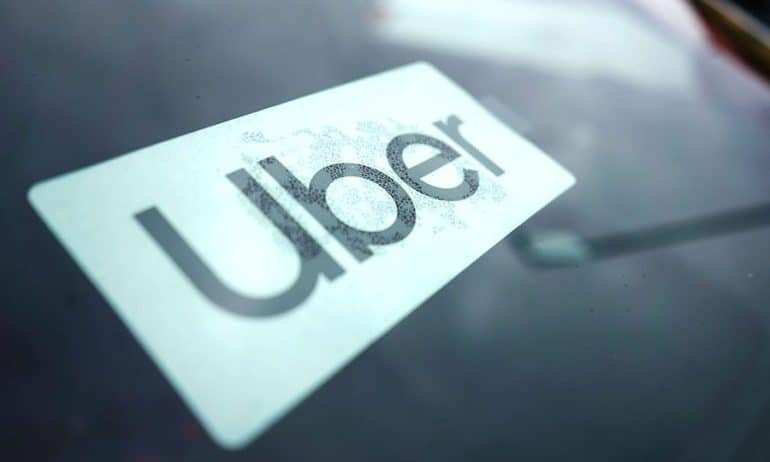Uber is at the center of a scandal after it was revealed in the past that the company "broke the law" and used violent methods to impose itself on the market, despite the reservations of politicians and taxi companies.
In fact, the so-called Uber Files seem to "burn" Emmanuel Macron, as they reveal the facilities he had given as finance minister to the company to establish itself in France.
"We have not justified and do not seek to justify behavior that is inconsistent with our current principles as a company," Jill Hazelbaker, Uber's vice president of marketing and public relations, said in a statement.
"We ask the public to judge us by what we have done in the last five years and by what we will do in the next," he added.
UberFiles
Britain's Guardian newspaper obtained from an anonymous source and shared with the International Consortium of Investigative Journalists (ICIJ) and its 42 media partners some 124.000 documents dating from 2013 to 2017, including SMSes and emails from Uber executives as well as presentations , notes and invoices.
Guardian front page, Monday 11 July 2022 – The Uber files: Leak reveals secret lobbying operation to conquer the world pic.twitter.com/04oRUBjgjb
- The Guardian (@guardian) July 10, 2022
Yesterday, Sunday, several media outlets around the world (including the Washington Post, Le Monde and the BBC) published their first articles on the scandal based on the Uber Files.
In them they present some of Uber's practices during the years of the company's rapid expansion, but also during a period when it was at the center of many controversies, mainly with taxi companies in various cities, from Paris to Johannesburg.
"The company broke the law, misled police and regulators, exploited violence against its drivers and secretly lobbied governments around the world," the Guardian article says in its introduction.
"Safety switch"
The articles mostly refer to messages from Travis Kalanick, then head of the San Francisco-based company. Uber executives had expressed concern to him about the dangers Uber drivers might face, who they encouraged to take part in a demonstration in Paris.
"I think it's very worth it," the company's co-founder replied. "Violence guarantees success."
According to the Guardian, Uber adopted similar tactics in several European countries (Belgium, the Netherlands, Spain, Italy), mobilizing its drivers and pushing them to complain to the police when they were victims of attacks, with the aim of the company taking advantage of the coverage from the media to extract concessions from the authorities.
"Kalanick never implied that Uber was exploiting violence at the expense of driver safety," countered Devon Spurgeon, a spokesman for the former head of the company, in a statement released by ICIJ.
Kalanick was forced to step down as CEO in June 2017 following accusations that he encouraged controversial and violent practices by company executives amid sexism and workplace harassment.
When he announced his resignation from Uber's board at the end of 2019, he said he was "proud of what the company has achieved".
His representative yesterday rejected all the newspaper's accusations, including that of obstruction of justice.
Uber had adopted a number of strategies to avoid enforcement efforts, including a "safety switch" that would immediately cut off an office's access to internet databases in the event of an investigation.
At the same time, the company offered its shares to political figures in Russia and Germany and paid researchers "hundreds of thousands of dollars to publish research on the benefits of its economic model," the British newspaper said.
"Out of the law"
The Guardian cites various excerpts of conversations between executives in which they comment that there is no legal framework for Uber's operations.
"Sometimes we get in trouble because we're completely outside the law," Uber communications director Nairi Khourdazian wrote to her colleagues in 2014, when the company's existence was threatened in Thailand and India.
In its announcement yesterday, Uber recalls that the media had adequately covered the company's "mistakes" before 2017.
"Today Uber (…) is an integral part of the daily lives of 100 million people," Hazelbecker emphasized. "We have moved from an era of confrontation to an era of cooperation."
Macron's role
Uber initially had to fight to be accepted by consumers. The company has found allies in power, such as Emmanuel Macron, during his time as economy minister (2014-16), who is said to have subtly helped the company.
Based on the testimony of various individuals and documents, including several text messages exchanged, Le Monde concluded that a secret "deal" had been struck between Uber and Mr. Macron.
The newspaper speaks of meetings in the minister's office and of many discussions (in personal appointments, during phone calls, via SMS) between Uber and Emmanuel Macron or his advisers, relying mainly on the accounts of these contacts, which were drafted by lobbyist Mark McGann.
He pointed to practices intended to help Uber consolidate its position in France: for example, there was a suggestion that the company was sending ready-made, "turnkey" amendments to parliamentarians.
Asked by AFP, Uber's French subsidiary confirmed there had been meetings with Mr Macron. "They concerned his area of responsibility as the Minister of Economy and Information Technology", as materially responsible for its activity.
Uber's French subsidiary flagged the suspension of its Uber Pop service, which it offered from February 2014 to 2015 and allowed users to call private drivers, not licensed taxis or its own employees. The suspension of the service "was not followed by more favorable regulation", as the idea that a secret "deal" had been struck would suggest, Uber's French subsidiary insisted.
The Elysée, for its part, assured AFP that Mr. Macron, as economy minister, "of course" had contacts "with various companies that were involved in profound changes in service sectors that occurred in the years in question," the which he "facilitated by removing administrative and regulatory obstacles".
With information from ΑΠΕ-ΜΠΕ, AFP
